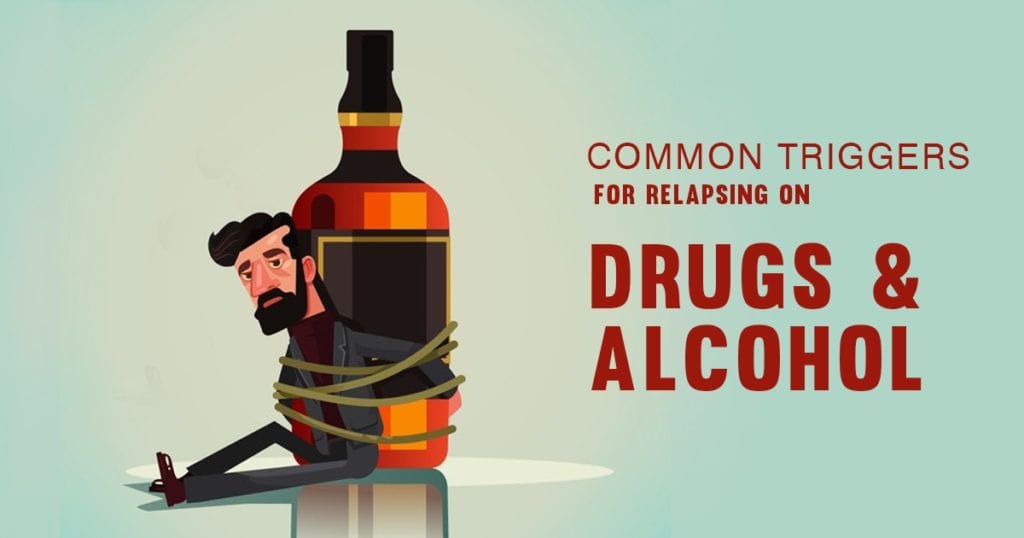
Relapse is an expected part of the cycle of addiction. It doesn’t matter what type of drug you’re addicted to; some treatment programs just believe you will inevitably fail and face a drug relapse. – “It’s just part of the cycle.”
Is this a crude generalization or a harsh truth?
It’s a very controversial idea among treatment facilities and counselors to believe that an addict can ever fully overcome addiction. A significant amount of people struggle with substance abuse, but that doesn’t mean they are all the same. Some of the more popular treatment programs, like AA, subscribe to the belief that addiction is something that can never be cured – you are “in recovery” for life. The idea that people will carry addiction with them forever, and that the process of being “in recovery” never ends, helps many people achieve long-term sobriety; it’s an idea that may be dangerous to challenge.
If you are looking to quit your alcohol and drug addiction but fear that you might relapse and fall into the vicious cycle of addiction again, you are not alone. Statistically, it’s common for people who struggle with drug and alcohol addictions to relapse at some point during recovery. Unfortunately, drug relapse rates for individuals who leave rehab are relatively high. According to the latest data from a study at the National Institute on Drug Abuse, 40 – 60% of people treated for substance use disorders will relapse at some point.
Why do I Relapse After Staying Sober?
A trigger can be anything that may cause you to drink or use drugs following a period of sobriety; relationships, emotions, thoughts, habits, physical illness, stress, and lack of sleep, among many other things.
While some common triggers of relapse are obvious — like being around other people who are using drugs and alcohol — others are less straightforward, and you may not be aware of the signs of relapsing at times. It is essential to understand what might trigger you to relapse and learn healthy coping mechanisms when triggered.
What Are The Most Common Relapse Triggers?
Here is a list of 10 common triggers that contribute to drug relapse:
Stress
Stress causes significant adverse effects on the mind and body. When a person becomes stressed out, their mind goes into a state of “wanting” for the drug or alcohol during stressful situations—Especially if the substance was the person’s primary coping mechanism.
Exposure to Alcohol or Drugs
There is a nostalgic aspect of drug use that can be particularly triggering. Being in an environment where there is drug use might be setting yourself up to fail. The sight, smell, or even sound of a drug being used could cause you to get flashbacks of your old habits. Try to remove yourself from any environments that will cause temptation.
Emotions (High and Low)
Perceived negative emotions like sadness, depression, guilt, loneliness, and anger can lead to emotional relapse. People often use drugs or alcohol to gain temporary relief from these feelings, which can easily lead a person back to addictive behaviors. Experiencing these emotions is normal and an essential aspect of recovery (and life) – but they are uncomfortable. Learning how to manage your feelings is an integral part of recovery (and life, again) and can help to avoid the risk of relapse.
People or Places Associated with Addiction
Seeing an old friend you used to do drugs with can cause you to develop an urge or craving to use again. Likewise, certain places that remind you of your addiction can be triggering. Some people do get dragged down by the company they decide to keep. It’s hard to do, but sometimes it’s best to find new friends and surround yourself with people who will be a good influence.
Special Events of Celebration
Festive life events such as holidays, birthdays, and graduations are often overlooked as relapse triggers. On the other hand, the anniversary of a loved one’s death or a funeral may stir up thoughts and emotions that can lead to substance use and trigger thoughts of getting back to your drug of choice. Be careful not to let the celebrations turn into regrets.
Mental or Physical Illness
Coexisting mental disorders are common with substance use disorder, and they make the struggle of addiction more difficult. Depression, anxiety, and any other underlying mental illnesses can feel overwhelming and may make you consider self-medicating for temporary relief.
Physical conditions and pain can also put you at risk for relapsing, as your body is stressed and may want to numb the pain by taking drugs. This pain also relates to drug withdrawal and the extreme discomfort that comes with it. For instance, an alcoholic for an alcoholic who stops drinking, the effects of alcohol create physical dependence, and their body literally depends on alcohol for it to function correctly. Withdrawing from alcohol can be intensely uncomfortable, even fatal, and a person may be tempted just to drink, so they don’t have to deal with it or to cope with the pain.
Poor Self-Care
Self-care is an integral part of the addiction recovery process. Poor self-care sends messages to your brain that you don’t care about your wellbeing and can trigger a relapse. You need to engage in self-care like showering, exercise, meditating, and having a proper sleep regimen to support your mental wellness in recovery and improve life quality.
Relationships and Intimacy
In the early stages of recovery, it’s recommended not to get involved in a relationship until you are stable; this could take a year or so. Relationships are hard work and come with stress, taking away focus from creating your sobriety. A break up with your new partner could lead you back to emotional stress that can put you at risk for relapse.
Boredom and Social Isolation
Boredom and social isolation are significant reasons for relapse in early recovery. When you are bored or isolated, you are left with your thoughts and emotions, which you often do not want to hear. The more you become socially isolated, the easier it is to make sense of drug or alcohol use to yourself. Negative feelings are a part of everyday life; it’s essential not to let them get hold of you.
Overconfidence
Sometimes people who are new to sobriety have a newfound pride that they will never use alcohol or drugs ever again, no matter what. Having self-confidence is great, but becoming overconfident can put you in risky situations. All it takes is one bad decision, and that confidence will turn into shame.
You are Not Alone; We are Here to Help!
Relapse doesn’t make you a failure. We fall, and we pick ourselves back up. Learning to recognize triggers, getting help from professionals, seeking treatment, and building a support network are valuable tools in preventing relapse. Make a relapse prevention plan and stick to it!
For more information on addiction treatment, therapy, and mental health, please contact us. Mindfulness-based relapse prevention is essential for people in recovery. Anchored Tides Recovery center offers various treatment options to deal with stages of relapse.































